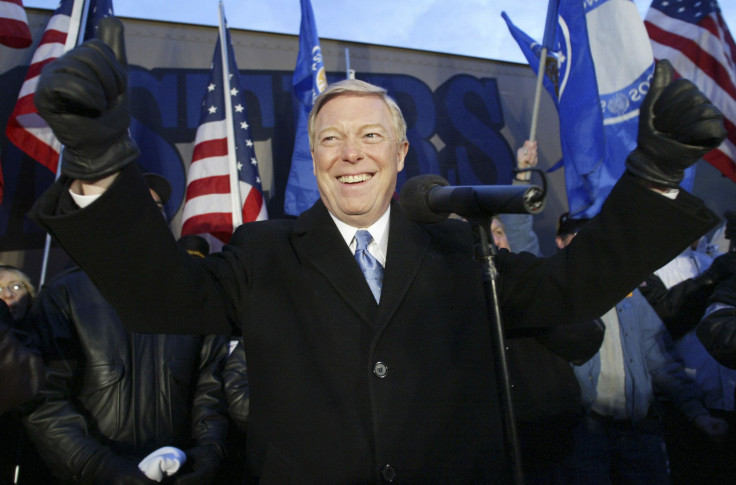Lawmakers Who Opposed Free Trade Cash In As Lobbyists For Trans-Pacific Partnership

During both of his presidential campaigns, former U.S. Rep. Dick Gephardt stuck to the theme that defined his 28 years in Congress. Free trade deals, the Missouri Democrat said, were destroying America’s middle class. He aired ads with the tagline: “ I'm Dick Gephardt. I approve this message because it's time we change America's trade policies.”
Gephardt, who served from 1977 to 2005, may have been best known for trying to block President Bill Clinton’s push for the 1993 North American Free Trade Agreement. Yet, 10 years after leaving Congress, Gephardt now runs a lobbying firm that has backed the so-called Trans-Pacific Partnership -- a still-secret trade accord that critics say would extend the NAFTA free trade model to 40 percent of the world’s economy.
He is not alone: An International Business Times review of federal lobbying records shows that at least three other former lawmakers who voted against NAFTA have lobbied for organizations that are demanding passage of the TPP -- or have sought to influence it to their benefit.
Taiwan paid Gephardt’s firm to press U.S. lawmakers to allow the foreign nation to be included the TPP agreement. [The effort was not successful.] The Gephardt Group has also worked for aircraft-maker Boeing to persuade lawmakers to pass a bill granting the White House “fast-track” trade promotion authority -- paving the way for passage of the TPP in Congress by limiting amendments and allowing only up-or-down votes on the trade deal. The company’s work for Boeing puts Gephardt in direct conflict with the powerful Machinists Union, which endorsed him for president in 2003 and has opposed both the TPP and fast-track.
In 1993, then-Rep. Ron Klink, D-Pa., stood side-by-side with Gephardt in opposing NAFTA. Klink said on the House floor that the agreement was “probably the most important issue that this Congress will take up,” and he warned that the deal could threaten U.S. labor and environmental laws.
As a senior policy adviser at Nelson Mullins Riley & Scarborough, though, Klink has lobbied Congress for Pharmaceutical Research and Manufacturers of America -- or PhRMA, the industry’s top trade group -- to “protect patent protections for pharmaceutical companies domestically and abroad through trade agreements.”
Klink lobbied for PhRMA as the group has sought longer exclusivity on drug patents under the TPP. Klink’s former colleague, Sen. Bob Casey, D-Pa. -- who endorsed Klink in his failed 2000 senate bid -- wrote to President Barack Obama in March, asking his administration to fight for 12 years of exclusivity for biologics in the TPP deal, as is standard in the United States. [The final figure in the deal appears to be lower.]
Former Rep. Albert Wynn, D-Md., has lobbied Congress on the TPP for the pharmaceutical company Bayer, as well as for the coal giant Peabody Energy. A decade before he became a senior director at Greenberg Traurig LLP, Wynn voted against NAFTA after expressing concerns about the potential for job losses in the United States.
Dirk Kempthorne, a former Republican governor from Idaho, opposed NAFTA as a senator. He’s now president and CEO of the American Council of Life Insurers, and lobbied Congress to pass the fast-track bill. Kempthorne’s group said in April that the legislation “will help the overall insurance industry surpass its goal of contributing $200 billion to U.S. exports by the end of the decade.”
Lobbying over the upcoming congressional votes on the TPP is expected to be fierce. Already, a pro-TPP coalition has spent almost $400 million lobbying Congress in just the last year.
Those corporate groups may have an advantage: Eighty-five percent of the members of the Obama administration’s 28 trade advisory committees are from corporations and trade associations, the Washington Post reported in 2014. Those members, the paper wrote, “attend private meetings with administration officials and get access to documents that the public cannot see.”
© Copyright IBTimes 2024. All rights reserved.






















